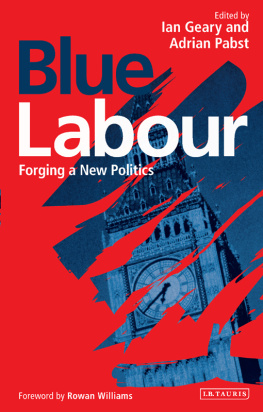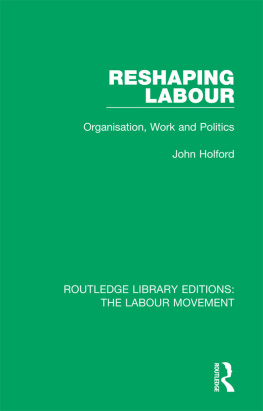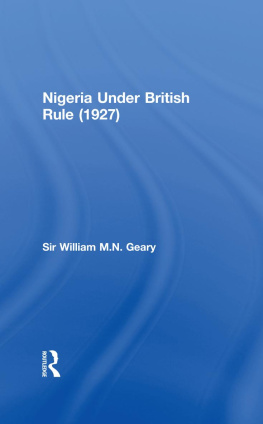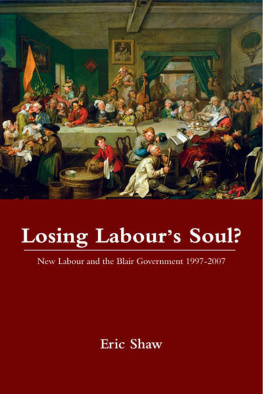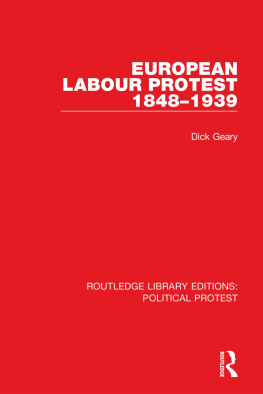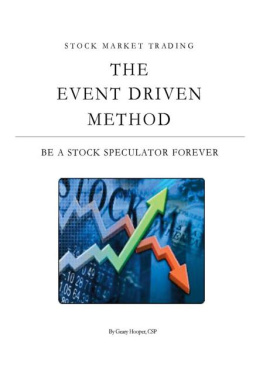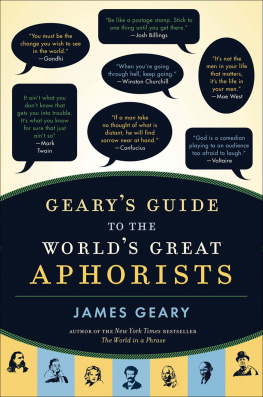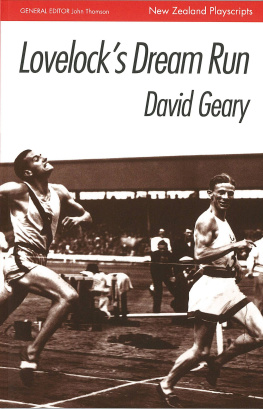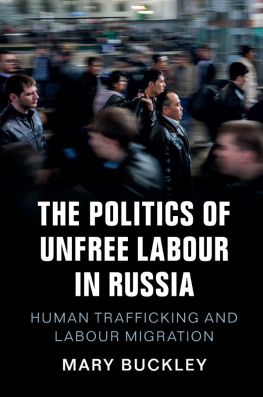Geary Ian - Blue Labour: Forging a New Politics
Here you can read online Geary Ian - Blue Labour: Forging a New Politics full text of the book (entire story) in english for free. Download pdf and epub, get meaning, cover and reviews about this ebook. year: 2015, publisher: I. B. Tauris & Company, Limited, genre: Politics. Description of the work, (preface) as well as reviews are available. Best literature library LitArk.com created for fans of good reading and offers a wide selection of genres:
Romance novel
Science fiction
Adventure
Detective
Science
History
Home and family
Prose
Art
Politics
Computer
Non-fiction
Religion
Business
Children
Humor
Choose a favorite category and find really read worthwhile books. Enjoy immersion in the world of imagination, feel the emotions of the characters or learn something new for yourself, make an fascinating discovery.
- Book:Blue Labour: Forging a New Politics
- Author:
- Publisher:I. B. Tauris & Company, Limited
- Genre:
- Year:2015
- Rating:5 / 5
- Favourites:Add to favourites
- Your mark:
- 100
- 1
- 2
- 3
- 4
- 5
Blue Labour: Forging a New Politics: summary, description and annotation
We offer to read an annotation, description, summary or preface (depends on what the author of the book "Blue Labour: Forging a New Politics" wrote himself). If you haven't found the necessary information about the book — write in the comments, we will try to find it.
Blue Labour: Forging a New Politics — read online for free the complete book (whole text) full work
Below is the text of the book, divided by pages. System saving the place of the last page read, allows you to conveniently read the book "Blue Labour: Forging a New Politics" online for free, without having to search again every time where you left off. Put a bookmark, and you can go to the page where you finished reading at any time.
Font size:
Interval:
Bookmark:
The Blue Labour movement has emerged as one of the most influential and controversial innovations of the British Left in a generation. Rooted in a deep reading of Labour history and culture, it offers a compelling critique of the Blair and Brown governments and a potential route to renewal revisiting the past so as better to face the challenges of the future.
RAFAEL BEHR, Political Columnist, The Guardian
Something went horribly wrong with British politics in the 1990s. The modernisers drained the meaning out of political engagement by focusing on strategy and presentation rather than substance. As a result all British political parties are now facing mortal crisis. This book on Blue Labour is the most thoughtful attempt yet to help Ed Miliband devise an answer to a conundrum which no twenty-first-century politician has yet been able to solve.
PETER OBORNE, Chief Political Commentator, Daily Telegraph
Anyone looking for an antidote to the stale and stultifying brand of liberalism which has dominated British political discourse for far too long will find a refreshing and thought-provoking alternative in the contributions to this timely volume.
MARK GARNETT, Senior Lecturer in British Politics,
Lancaster University
Blue Labour ably exposes the deficiencies of neo-liberalism and offers an inviting political agenda based on a moral economy of mutual obligations. With neo-liberalism discredited by predatory banking, and socialism by the collapse of the planned economies, the paths back to a moral economy are well worth exploring. They are not the property of any political party, but will be of special interest to Labour supporters trying to develop an alternative narrative to that of the free market and the centralized state.
ROBERT SKIDELSKY, FBA, Emeritus Professor of Political Economy, University of Warwick
Blue Labour isnt, to me, about that rather glib little triad, Faith, Flag and Family. Its an attempt to reconnect the Labour Party with the very people it was set up to protect and represent. And to devise modern and imaginative policies so that this reconnection might be best achieved.
ROD LIDDLE, Associate Editor, The Spectator
In calling for a post-liberal politics of the left, Blue Labour advocates have put themselves in a very mixed company. Watching them seek out a virtuous path through the ambiguous legacies of nation, religion, family and other conservative themes is both fascinating and instructive, challenging the presuppositions of any reader.
Colin Crouch, FBA, Emeritus Professor of Governance and
Public Management, University of Warwick
In memoriam
John Hughes (19782014)
Contents
Published in 2015 by
I.B.Tauris & Co. Ltd
London New York
www.ibtauris.com
Copyright Editorial Selection, Introduction and Conclusion
2015 Ian Geary and Adrian Pabst.
Copyright Individual Chapters 2015 Luke Bretherton, Jon Cruddas, Rowenna Davis, Ruth Davis, Frank Field, Maurice Glasman, David Goodhart, Arnie Graf, David Lammy, Dave Landrum, Michael Merrick, John Milbank, Adrian Pabst, Tom Watson, Ed West, Rowan Williams and Ruth Yeoman.
The right of Ian Geary and Adrian Pabst to be identified as the editors of this work has been asserted by them in accordance with the Copyright, Designs and Patents Act 1988.
All rights reserved. Except for brief quotations in a review, this book, or any part thereof, may not be reproduced, stored in or introduced into a retrieval system, or transmitted, in any form or by any means, electronic, mechanical, photocopying, recording or otherwise, without the prior written permission of the publisher.
References to websites were correct at the time of writing.
The chapters in this volume comprise the individual views of their respective writers and should not be read as an official statement of policy or as an endorsement by the editors.
ISBN: 978 1 78453 202 4
eISBN: 978 0 85773 781 6
A full CIP record for this book is available from the British Library
A full CIP record is available from the Library of Congress
Library of Congress Catalog Card Number: available
Typeset in MinionPro by Data Standards Ltd, Frome, Somerset
Foreword
Rowan Williams
At the heart of our current cultural muddle lies a paradox that far too few people seem to have noticed. All sorts of intellectual disciplines, from neuroscience to literary theory, have in recent decades questioned the idea that the starting position for human identity is a solitary, speechless individual who moves out from primitive isolation to negotiate cautiously with other similar creatures, and learns to use language as a tool for labelling objects that can be variously managed and utilised. This powerful myth cannot credibly survive the analysis of how language and consciousness actually work: we ought to be more than ever alert to the fact that our self-awareness is shaped by the inseparable awareness of other subjects, that projection into the life of the other is there from the start, that how others speak to us, imagine us, nurture or fail to nurture us, is not an extra to our sense of who or what we are but completely woven into the very idea of being a self.
Yet so much of our public rhetoric and popular imagination is still clinging to the myth. Self and other is a zero-sum game for many; it shows up in attitudes to foreigners and migrants, in the world of finance, in demands for more explicit teaching about a single dominant national history to be defined over against others. The language of human rights an essential moment in the development of a critical and humane politics has encouraged some to speak as though the self-evident needs I identify for myself have an intrinsic authority. We are fast losing, as many commentators have pointed out, a solid idea of public service and public good the idea of universally shared responsibility for shared well-being, and the idea that there are some goods for human beings that are necessarily held in common and achieved by collaboration. And that is to say that we are losing the sense that there are other kinds of relationship between people than the exchange of commodities.
There is nothing new in this reading of our situation; what needs to be brought out a bit more clearly is that there is a contradiction between this powerful cultural myth and the way in which sciences and humanities alike are describing us. In other words, we need to wake up to the fact that a lot of our politics assumes various things about our humanity that are not true; that we are being actively encouraged to lead lives at odds with what we actually are, with how our minds and feelings actually work. The challenge to conventional politics at the moment is the question of what the political world might look like if it tried to work with rather than against the grain of our humanity. This collection of essays seeks to meet that challenge.
These essays do not represent a simple argument for the priority of community over individualism. That can too easily become another zero-sum exercise. The difficult and necessary job is to do with rethinking what we mean by an individual not lobbying for some sort of subjection of person to collective. Can we build a realistic political platform from the vision of persons always in relation, not just entering into relation? A political platform from which our dependence and indebtedness to one another and to the entire material environment we inhabit can be acknowledged in a way that lets us live within our limits and attend to one anothers well-being with a measure of grace and generosity? In short, can we make politics a humanist affair, in the proper and wide sense of the word that has to do both with the thick fabric of civic solidarity and with the opening up of imaginative and intellectual horizons to all citizens?
Next pageFont size:
Interval:
Bookmark:
Similar books «Blue Labour: Forging a New Politics»
Look at similar books to Blue Labour: Forging a New Politics. We have selected literature similar in name and meaning in the hope of providing readers with more options to find new, interesting, not yet read works.
Discussion, reviews of the book Blue Labour: Forging a New Politics and just readers' own opinions. Leave your comments, write what you think about the work, its meaning or the main characters. Specify what exactly you liked and what you didn't like, and why you think so.

